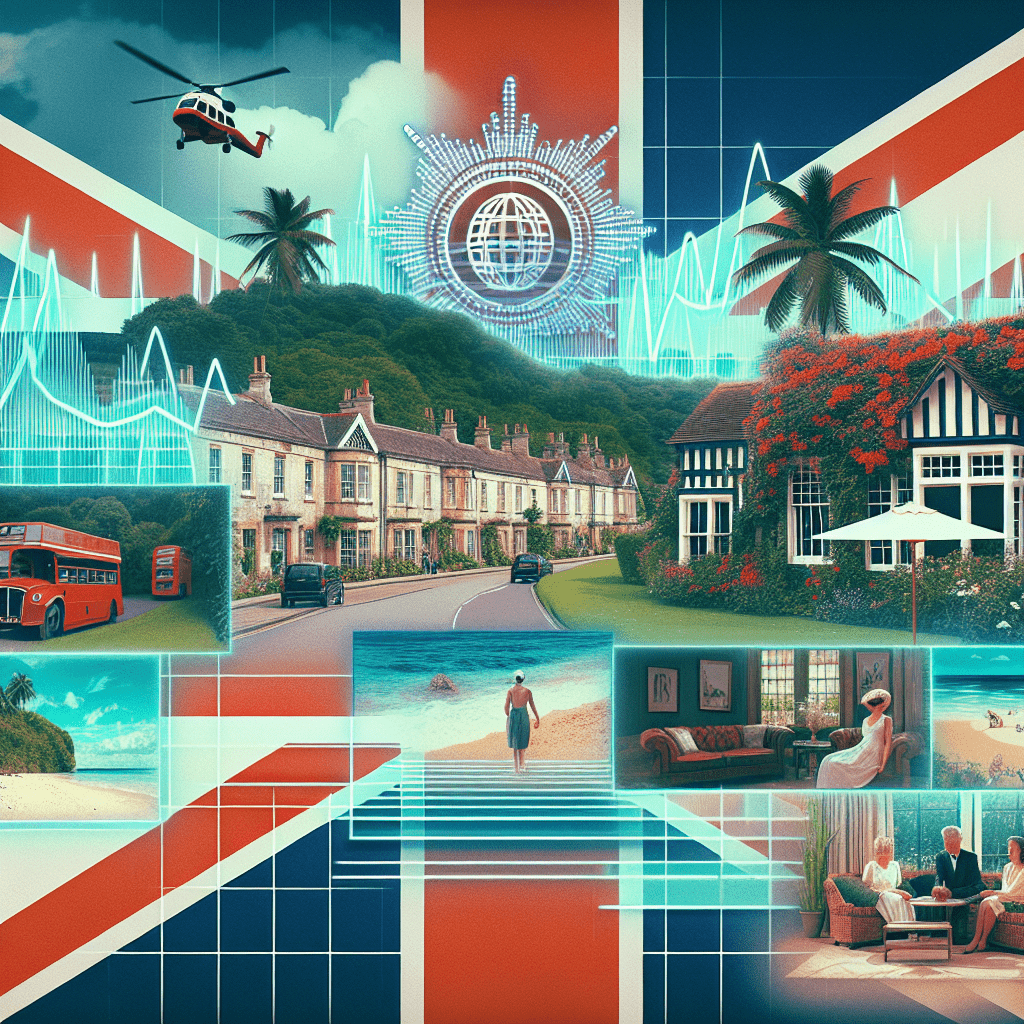### ITV: A Major Player in the UK Television Landscape
The Independent Television network, colloquially known as ITV, stands as a formidable entity within the United Kingdom’s media sphere. ITV has shaped British culture through its diverse programming, which includes everything from soap operas and reality TV to news and sports coverage. The network’s impact is widespread, contributing significantly to the UK’s broadcasting industry and serving as a key competitor against the BBC. In this extensive exploration of ITV, we delve into its history, current operations, contributions to television arts and its potential trajectory in an ever-evolving digital landscape.
The Genesis of ITV: From Monopoly Breaker to Household Name
ITV was initiated to break the monopoly of the British Broadcasting Corporation (BBC) and introduce competition in the broadcasting marketplace. The network’s foundations were laid by the Television Act 1954, leading to the establishment of the Independent Television Authority (ITA), which regulated commercial TV.
On September 22, 1955, ITV made its maiden broadcast, injecting a new competitive element to UK television. Its initial growth was measured, but it soon gained momentum as it expanded its reach across the nation by setting up regional franchisees that catered to specific areas. This decentralised model allowed for a rich variety of programming that reflected regional interests and needs.
Regionality and Evolution
The regional structure has been one of ITV’s most distinguishing features. It began with companies such as Granada, ATV, and Granada producing programmes not just for regional consumption but also for network-wide broadcast. This compromise between regional specificity and national appeal proved a winning strategy for engaging a broad audience.
Through the years, ITV would undergo several transformations in response to technological advances and market demands. The introduction of Channel 4 in 1982 – a station which ITV initially provided programs for until it became self-sufficient – and the proliferation of digital satellite and cable services in the 1990s posed fresh challenges, leading to the consolidation of many regional franchises to strengthen competitiveness. Meanwhile, time saw ITV becoming more streamlined under the brand of ITV plc following the Communications Act 2003, which led to mergers creating a single entity responsible for most regional franchises.
Programming Highlights: From Soap Operas to Sports Coverage
ITV has made its mark by offering some of Britain’s most cherished television moments. It established itself with innovative programming including hit shows like ‘Coronation Street’, the world’s longest-running TV soap opera. High-quality dramas such as ‘Downton Abbey’ reached not just national but international audiences as well. Its impact on pop culture can be seen in reality TV with programming like ‘Love Island’ and ‘I’m a Celebrity…Get Me Out of Here!’
In addition to entertainment, ITV has been a dependable source for national and regional news through ‘ITN’ (Independent Television News) and for covering significant live events, from royal weddings to football matches. With consistent innovation in programming and an eye towards resonant storytelling, ITV continues to lure significant viewership and maintain cultural relevance.
Facing Digital Disruption: Innovations and Online Expansions
As audiences increasingly shift online, ITV has reacted by rolling out digital offerings such as the on-demand service ITV Hub. Reflecting industry trends, it’s crucial for traditional broadcasters like ITV to innovate and adapt within a crowded digital marketplace dominated by streaming giants such as Netflix, Amazon Prime Video and Disney+. Acutely aware of its need to evolve, ITV has made strategic moves including enhancing its digital platforms and looking into original digital content creation.
ITV understands that to stay competitive, it cannot exclusively rely on television ratings but must also establish its presence in the lives of viewers who primarily or solely consume content digitally. Thus, further developments in online engagement practices, targeted advertising approaches based on user data, and perhaps even fully digital channels or series may be forthcoming.
Recent Financial and Market Performances
Commercially, ITV depends heavily on advertising revenue; it commands substantial advertising investments due to its strong audience shares. Nonetheless, economic fluctuations can seriously impact these revenues; thus ITV often works fervently to attract stable patronage from advertisers through high-grade programming and cross-platform engagement opportunities.
Additionally, financial results display operational resilience even when confronting stiff competition and fluctuating markets. It indicates an array of efficiencies from cost management to resource deployment that helps safeguard against market shifts.
Notes
### Image Description
An image featuring various stills from popular ITV shows such as “Coronation Street”, “Love Island”, and “Downton Abbey”, alongside the iconic ITV logo positioned centrally. The images are surrounded by graphics representing television signals and digital streaming symbols depicting the convergence of traditional broadcast and modern digital platforms at ITV.
